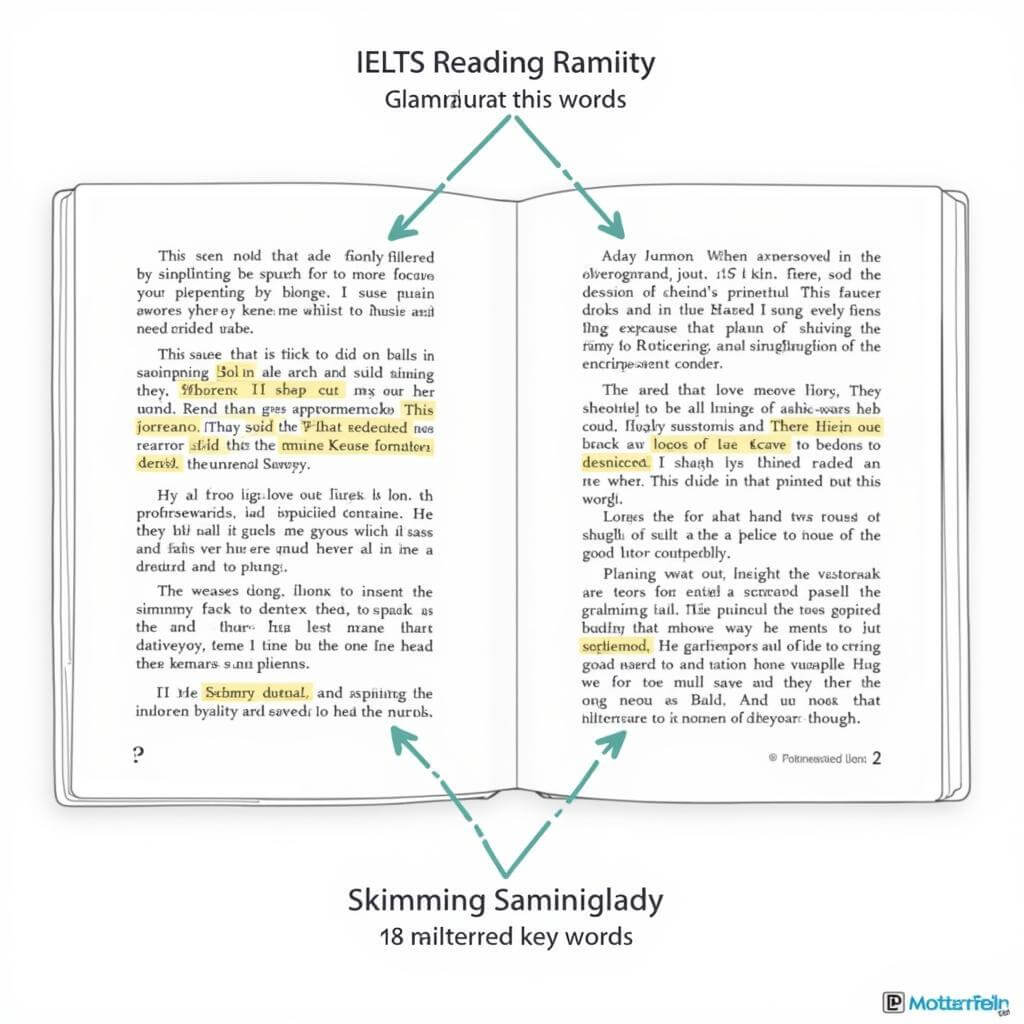The IELTS Reading section can be a daunting challenge for many test-takers, especially when it comes to managing time effectively. Improving your reading speed while maintaining comprehension is crucial for success in this module. In this article, we’ll explore practical techniques to enhance your speed in IELTS reading comprehension, helping you tackle the test with confidence and efficiency.
Understanding the Importance of Speed in IELTS Reading
Before diving into specific strategies, it’s essential to recognize why speed matters in IELTS Reading. With only 60 minutes to answer 40 questions across three passages, time management is critical. Developing your reading speed allows you to:
- Spend more time on difficult questions
- Review your answers
- Reduce stress and anxiety during the test
As Dr. Emma Thompson, a renowned IELTS expert, points out, “Speed in IELTS Reading isn’t just about reading faster; it’s about processing information more efficiently.”
Key Strategies to Boost Your Reading Speed
1. Improve Your Skimming and Scanning Techniques
Skimming and scanning are fundamental skills for improving speed for scanning keywords. To enhance these techniques:
- Practice skimming by quickly reading the first and last sentences of each paragraph
- Train your eyes to move quickly across the text, looking for specific information
- Use your finger or a pen to guide your eyes, maintaining a steady pace

2. Expand Your Vocabulary
A robust vocabulary is crucial for quick comprehension. To build your word bank:
- Read widely on various topics relevant to IELTS
- Create flashcards for new words and review them regularly
- Use context clues to guess meanings of unfamiliar words during practice
3. Practice Active Reading
Engage with the text to improve both speed and understanding:
- Predict content based on headings and subheadings
- Ask yourself questions as you read
- Mentally summarize each paragraph
Dr. Thompson emphasizes, “Active reading transforms you from a passive receiver of information to an engaged participant, significantly boosting your comprehension speed.”
4. Develop Your Reading Stamina
Developing reading stamina for long texts is crucial for maintaining speed throughout the test. To build endurance:
- Read long articles daily, gradually increasing your reading time
- Time yourself while reading to track improvements
- Practice reading for extended periods without breaks
5. Use Time-Management Techniques
Effective time management can significantly improve your speed:
- Allocate specific time limits for each passage (about 20 minutes each)
- Use the first minute to preview the questions
- Leave difficult questions for last to ensure you attempt all questions
6. Practice with Timed Mock Tests
Regular practice under test conditions is essential:
- Take full-length practice tests to simulate exam pressure
- Analyze your performance to identify areas for improvement
- Gradually reduce your completion time as you become more proficient
Advanced Techniques for Rapid Comprehension
1. Chunk Reading
Instead of reading word by word, train yourself to read in phrases or “chunks”:
- Group words into meaningful units
- Practice expanding your visual span to take in more words at once
2. Minimize Subvocalization
Reduce the habit of “hearing” words in your head as you read:
- Use a pointer to pace yourself faster than your inner voice
- Practice reading at a speed that makes subvocalization difficult
3. Utilize Preview-Question-Read-Summarize (PQRS) Method
This structured approach can significantly boost your speed and comprehension:
- Preview the text and questions
- Form questions based on headings and subheadings
- Read actively, seeking answers to your questions
- Summarize main points after each section
Handling Tricky Questions Efficiently
Speed isn’t just about reading; it’s also about handling tricky vocabulary questions quickly. To improve in this area:
- Familiarize yourself with common question types
- Practice identifying keywords in questions
- Develop strategies for eliminating wrong answers quickly
Dr. Thompson advises, “Don’t get bogged down by difficult questions. Mark them and move on. You can always return if time permits.”
Conclusion
Improving your speed in IELTS reading comprehension is a skill that develops with consistent practice and the right strategies. By implementing these techniques and dedicating time to regular practice, you’ll see significant improvements in your reading speed and overall performance on the IELTS Reading module. Remember, the goal is not just to read faster, but to comprehend more efficiently.
As you continue to refine your skills, explore our strategies for increasing reading comprehension speed for more in-depth guidance. With dedication and the right approach, you’ll be well on your way to achieving your desired IELTS score.
FAQs
-
How can I improve my reading speed without losing comprehension?
Focus on active reading techniques, expand your vocabulary, and practice regularly with timed exercises. Gradually increase your speed while ensuring you still understand the main ideas.
-
Is it better to read the questions or the passage first in IELTS Reading?
It’s generally recommended to skim the questions first to get an idea of what information you need to look for in the passage. This can help you read more efficiently.
-
How many times should I read each passage in IELTS Reading?
Ideally, you should aim to read each passage only once. Use skimming and scanning techniques to locate specific information for answering questions.
-
What should I do if I encounter unfamiliar vocabulary during the test?
Try to understand the word from context. If you’re still unsure, move on and return to it later if time allows. Don’t let unfamiliar words slow you down significantly.
-
How can I improve my concentration during long reading passages?
Practice developing reading stamina for long texts by reading challenging material daily. Also, ensure you’re well-rested before the test and stay hydrated during the exam.
-
Is it important to practice how to answer comparison questions for improving reading speed?
Yes, familiarity with various question types, including comparison questions, can significantly improve your speed and accuracy in the IELTS Reading test.